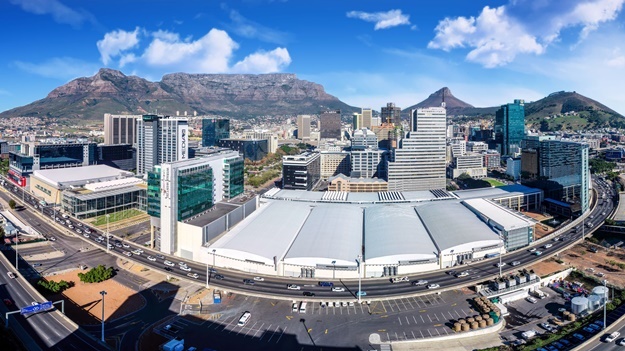
- Some government buildings are abandoned or derelict and government could do more to make better use of them, says the head of the Investment and Infrastructure Office in the Presidency.
- That is why government wants to talk to municipalities and provinces about finding the best use of these buildings.
- He is hopeful that government will be able to provide more clarity on this March next year.
Government is not “sweating” its large state-owned immovable property portfolio enough, in the view of Dr Kgosientso Ramokgopa, head of the Investment and Infrastructure Office in the Presidency.
"Some government buildings are abandoned or derelict. One is bang in the middle of Cape Town next to the Convention Centre [Customs House in the harbour area on the Foreshore]. So, we want to determine what is the best use for it,” Ramokgopa said during the annual overview of the Wesgro on Monday.
Wesgro is the official tourism, trade, investment and film promotion agency for Cape Town and the Western Cape.
“There could be multiple other such buildings. We want to talk to municipalities and provinces. It is not about national, provincial or local, but about finding the best use of these buildings,” said Ramokgopa.
The Customs House building is an example of such "low-hanging fruit" as well as the redesigning and densifying of estates where ministerial houses are situated.
"If ministers are moved out of those estates, what does one do with [those areas]? That is where we can get input for ideas. We want to get private sector participation and a blended finance approach. It is about generating reliable, sustainable revenue streams. That is why government is calling for greater levels of coordination. It is about having an over-arching investment strategy approach," said Ramokgopa.
For him “one silver lining of the dark cloud of the coronavirus pandemic” is the forging of a greater working relationship between the public and private sector.
"Over the past six months we have developed a communion with the private sector, especially funding facilities like banks, due to a need for us to explore innovative funding instruments," said Ramokgopa.
"Greater focus on ensuring you keep businesses alive and to ensure poor households are able to have a decent meal has undermined investments into infrastructure. Therefore, we are coordinating - at the forefront of the SA investment conference - a hybrid approach because of the requirements of the pandemic.”
He pointed to financing green infrastructure as an area with good potential to draw investment as well as "liberalising the energy space".
"We are still battling to move from transition investment pledges to actual investment. There is a need for us to develop solidarity-orientated relationships. Many funding institutions say all the good projects that could be funded have been funding. So, we want to talk about projects underpinned by credible, independent and sustainable revenue streams, not the ones looking for funding through the fiscal streams," explained Ramokgopa.
He is hopeful that government will be able to provide more clarity on this March next year.
